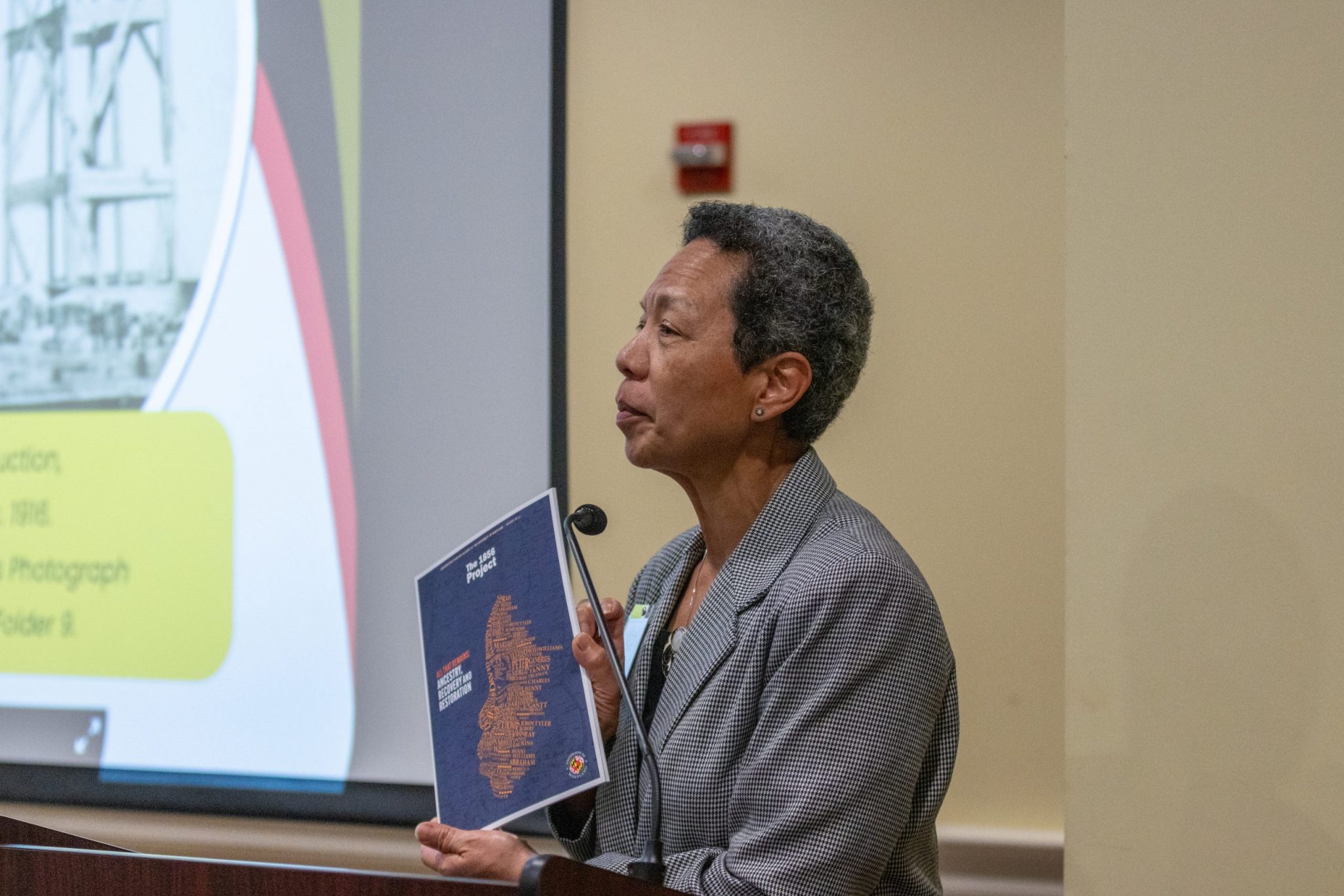University of Maryland researchers and faculty members introduced the Bowie Ancestors Project and other new initiatives exploring the university’s historical connection to slavery at the 1856 Project’s second annual research update on Friday in Stamp Student Union.
The 1856 Project is an ongoing research project dedicated to uncovering links between this university’s founding and the history of slavery. According to the project’s website, it was introduced to this university in 2020 as a branch of Universities Studying Slavery — a global consortium of more than 100 higher education institutions that focuses on slavery and racism in the histories of academic institutions.
The project’s updates on Friday included progress on multiple historical investigations and the upcoming launch of a research incubator this spring.
Georgina Dodge, this university’s vice president for diversity and inclusion, opened the meeting by acknowledging the project’s importance, especially during current “confusing and distressing” times.
While new research may be unsettling, learning from the past is crucial to understand the present, Dodge said.
“The troubles that we are experiencing today make it all the more pressing that we lean into the trials and the triumphs of our ancestors,” Dodge said during the presentation.
More than 200 people, including virtual and in-person attendees, attended the research update meeting, according to Dodge.
Barnet Pavão-Zuckerman, the chair of this university’s anthropology department and 1856 Project advisory board member, introduced the Bowie Ancestors Project during Friday’s meeting.
[1856 Project presents findings exploring university ties to slavery]
This university’s anthropologists began the project in 2017 to investigate human remains that showed signs of enslavement from a recently rediscovered cemetery in Bowie, Pavão-Zuckerman said.
“We began the process of doing the research to repatriate and bring them home,” Pavão-Zuckerman told The Diamondback. “It’s reconciling with this problematic history, but also understanding that people … found ways to keep moving forward under really difficult circumstances.”
The project’s next step is to connect with living descendants of the uncovered ancestors and involve them in further research, Pavão-Zuckerman said.
The Mellon Foundation awarded a $200,000 grant to the 1856 Project to support the two-year development of a Reparative Histories and Social Justice Research Incubator.
The incubator aims to promote collaborative research between academic institutions and community members into how academic institutions engaged in and benefited from slavery, according to the report. The incubator is set to launch this spring, the report said.
Lae’l Hughes-Watkins, associate director of engagement, inclusion and reparative archives for this university’s libraries, said the incubator also aims to launch educational modules at this university based on research conducted during the program.
Faculty members could incorporate the modules into various student curriculums, Hughes-Watkins explained.
The 1856 Project team also hopes to extend their reach in the local community through oral history workshops during the two-year grant period, according to advisory board member Angela Rodgers-Koukoui.
[Lakeland residents discuss community’s history, reparations in town hall]
During Friday’s update, Douglas McElrath, the director of this university’s special collections and university archives, also provided updates about the 1856 Project’s investigation into the Oakland plantation.
The plantation belonged to slave owner John Eversfield and was established in the 19th century on land now occupied by this university, according to McElrath.
Eleven out of 28 reported enslaved people on the Oakland plantation had the last name Duckett, the report said. This has led to deeper research into the Duckett family’s ancestry, McElrath added.
The project’s next step is contacting the Duckett family’s present-day descendants, McElrath said.
“Part of the responsibility of anybody doing this type of work is to make sure that we’re speaking to whole communities,” McElrath said during the meeting’s Q&A segment. “Although we’re focusing on a very specific story here with the 1856 Project, it’s part of a much larger story to tell that we are all connected to.”
Senior African American and Africana studies and anthropology major Olivia Blucker presented her research from her participation in the 1856 Summer Research Initiative on Friday.
“It made me feel really useful on this campus,” Blucker said. “This program was the first thing that really opened my eyes to the ways in which I could be a part of bigger projects.”



